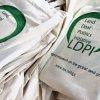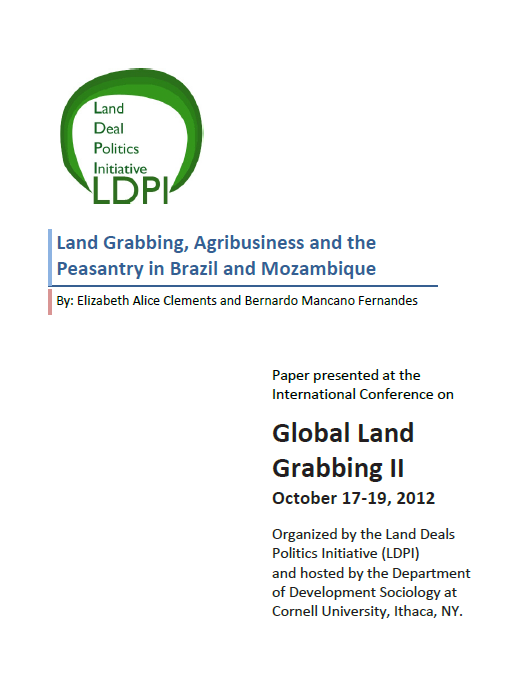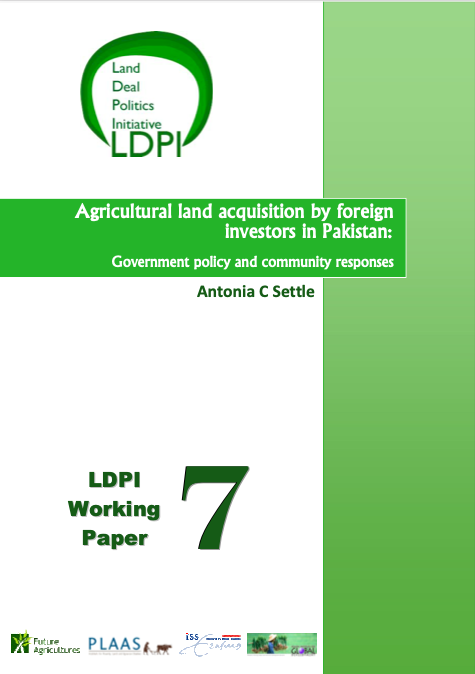Location
The Land Deal Politics Initiative (LDPI) is a network of the research programme of Political Economy of Resources, Environment and Population (PER) of the International Institute of Social Studies in The Hague, Part of Erasmus University Rotterdam.
The aim of LDPI is for a broad framework encompassing the political economy, political ecology and political sociology of land deals.
Our general framework is based on answering 6 key questions:
- Who owns what?
- Who does what?
- Who gets what?
- What do they do with their surplus wealth?
- Ho do social classes and groups in society and within the state interact with each other?
- How do changes in politics get shaped by dynamic ecologies and vice versa?
First steps will involve data-gathering through literature reviews, followed by research into more targeted national contexts. This will help us understand a broader set of 'so what' questions.
Members:
Resources
Displaying 16 - 20 of 27Conservation and ecotourism on privatised land in the Mara, Kenya. The case of conservancy land leases
Investigates private sector investment in conservation and ecotourism through conservancy land leases in the Mara region of Kenya. In recent and growing tourism development, groups of Maasai landowners are leasing their parcels of land to tourism investors and forming wildlife conservancies. Examines this model and the implications it has for Maasai livelihoods and the environment. Given the large extent and recent change in ownership in these areas, land leases do however keep the lands they cover together and are potentially an optimistic outlook for such open rangeland areas.
Gendered Dimensions of Land & Rural Livelihoods. The case of new settler farmer displacement at Nuanetsi Ranch, Mwenezi District, Zimbabwe
Nuanetsi Ranch had been invaded by villagers from different parts of Mwenezi, Chiredzi and Chivi communal areas since 2000. In February 2010, the government announced that the settlers had to be removed and resettled in other ’uncontested lands’ in the area, compromising their rights to sustainable livelihoods, human development and land acquisition. The perceptions of the men and women resident at Chigwizi has had a bearing on understanding the nature of gendered land and rural livelihoods in the context of biofuel production in Zimbabwe, after fast track land reform.
Gendered dimensions of land and rural livelihoods: the case of new settler farmer displacement at Nuanetsi Ranch, Mwenezi District, Zimbabwe
The biofuel boom has become a core issue in Zimbabwean land and development debates. Biofuels require large tracts of land for production; and the land acquisition programmes by the various state, non-state actors and individuals have been termed ‘land grabbing’. The increasing global demand for biofuels has different gender specific socio-economic and environmental effects in Zimbabwe. Males and females in the biofuel producing zone may face a differential risk matrix, comprising different issues.
Land Grabbing, Agribusiness and the Peasantry in Brazil and Mozambique
This work presents initial results of research into the complex relationships between the development of the land grabbing and agribusiness expansion in Brazil and Mozambique and their effects on the peasantry in both countries. We will examine the relations between the governments of Brazil and Mozambique in order to understand Brazil’s relatively recent involvement in land grabbing in Mozambique. This will inform our discussion of the role of Brazil as a country affected by land grabbing, while simultaneously promoting such practices in Mozambique.
Agricultural land acquisition by foreign investors in Pakistan
This paper explores the Pakistani government’s 2009 agricultural investment policy package — a response to increasing foreign investor interest in agricultural land — and considers the likely implications for local communities. By analysing the policy pertaining to the categories of cultivated and uncultivated land, the paper explores possible consequences that peasant farming communities and grazing communities face.





